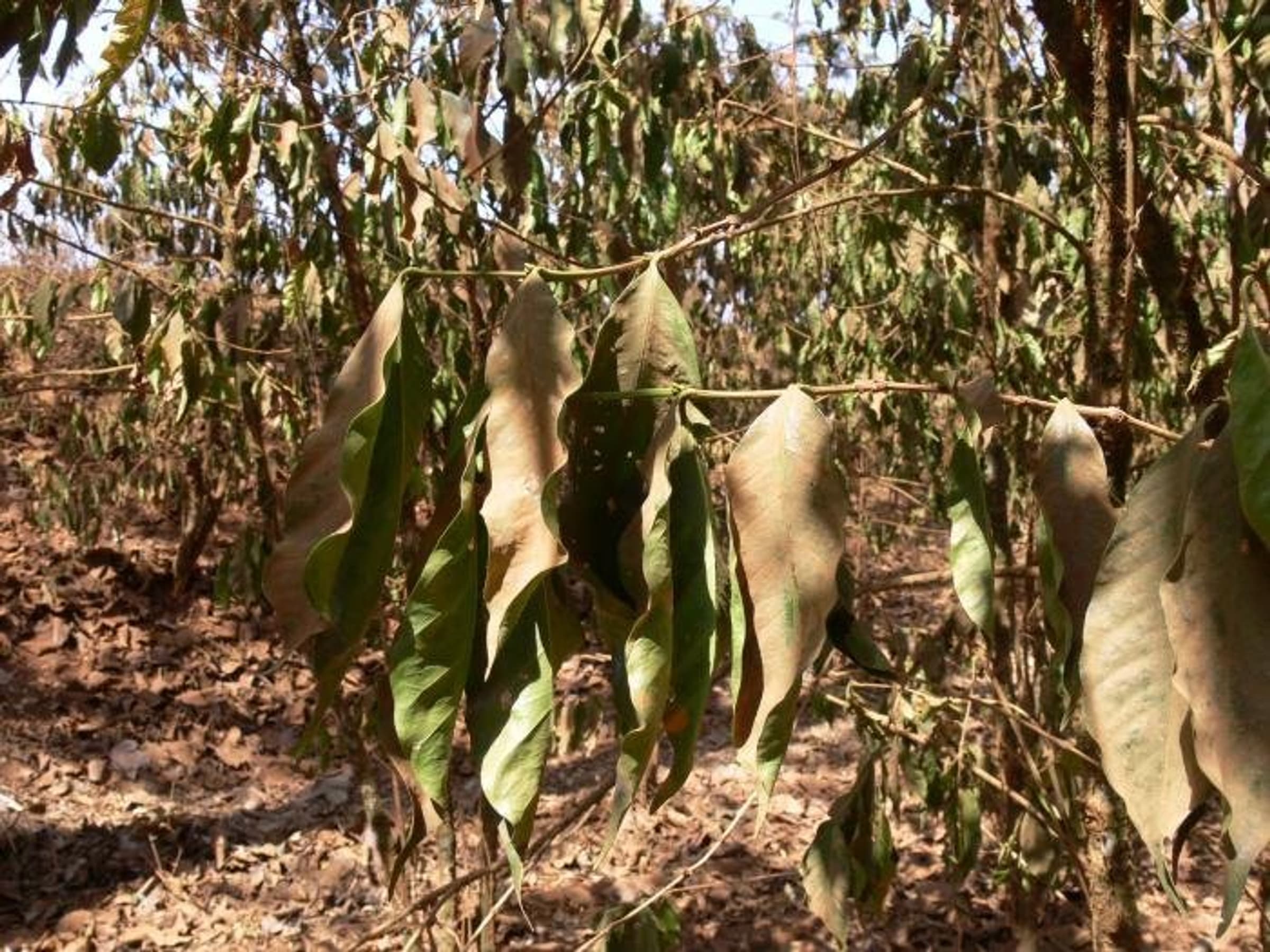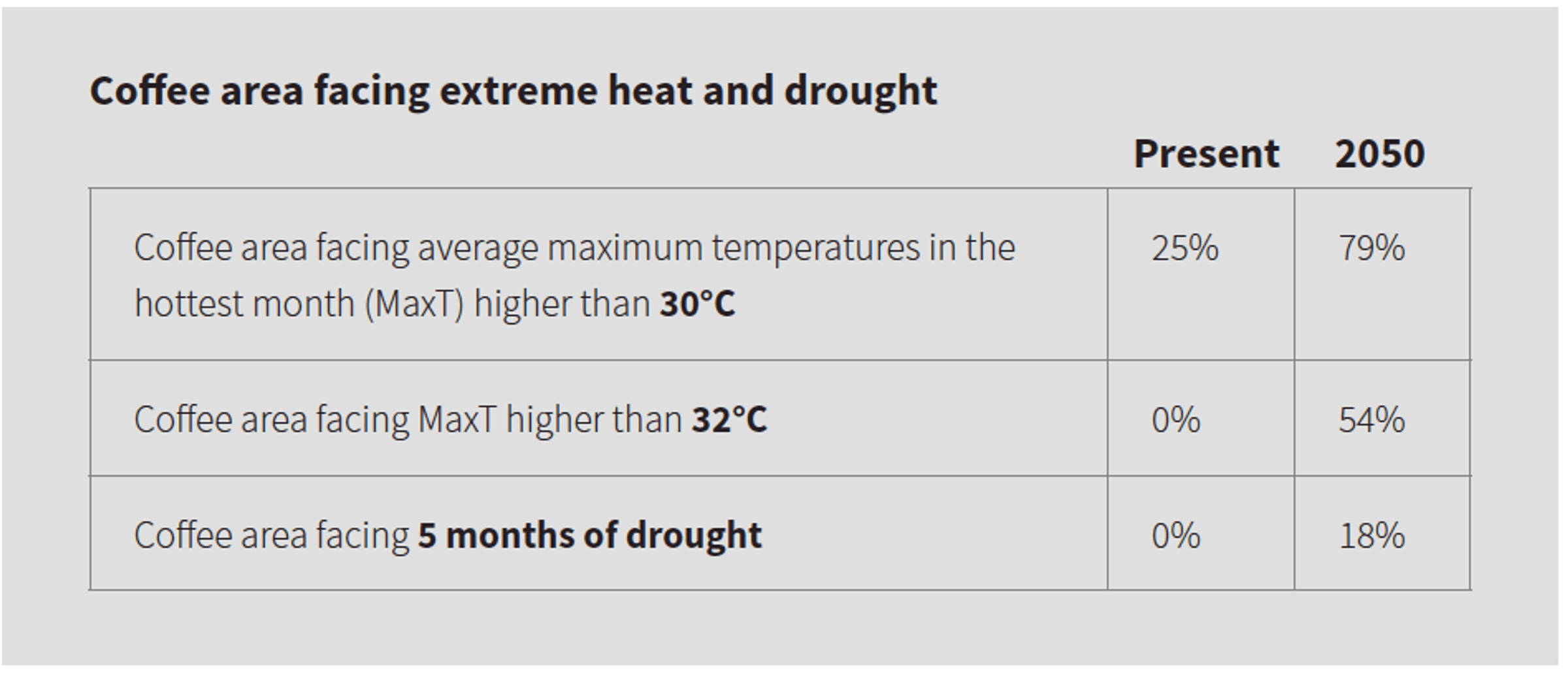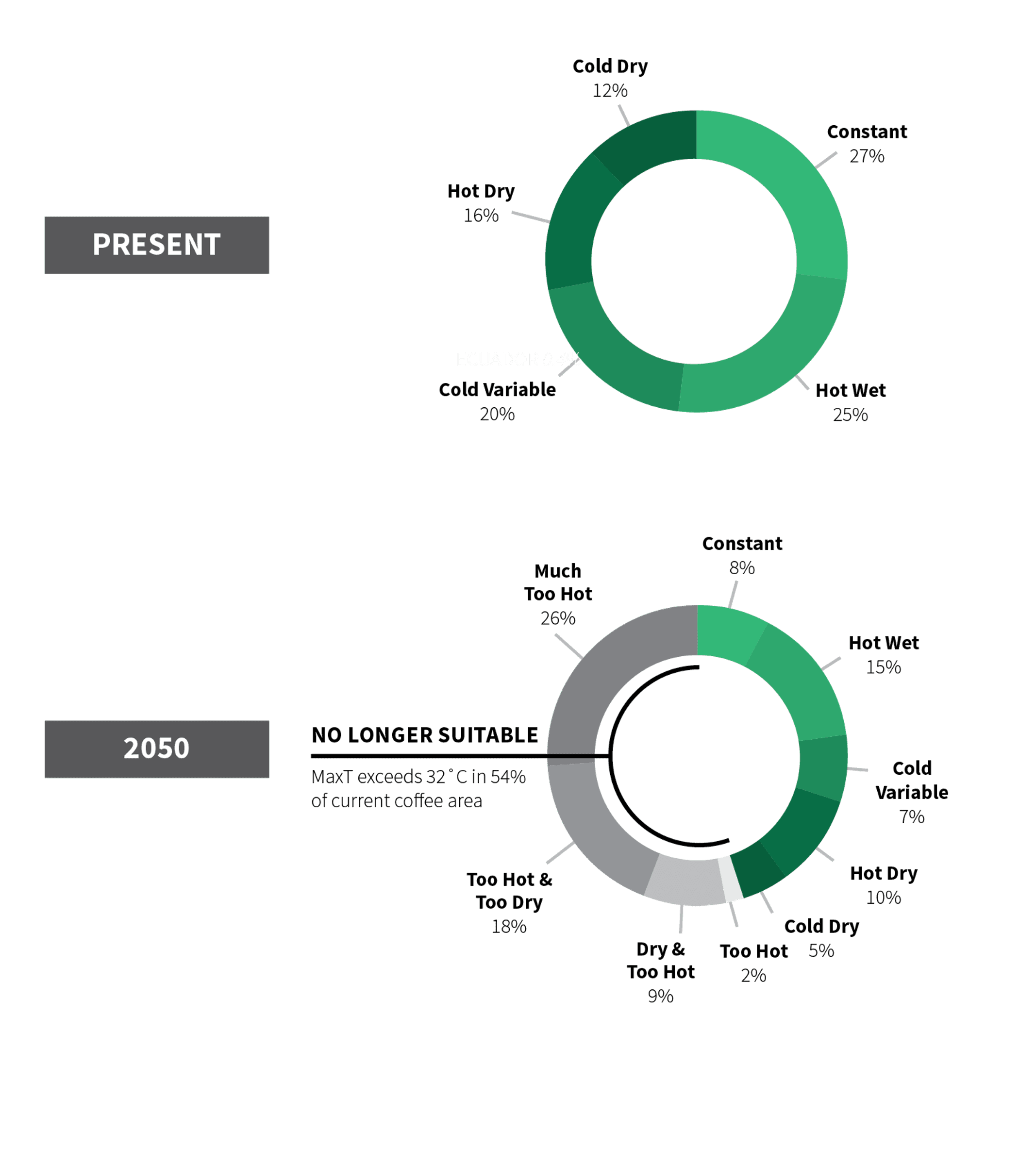Coping with 32°
A new target for climate-smart breeding

A baby coffee plant put in the ground today will bear the full brunt of climate change over its 20 to 60-year lifespan. Prior research by World Coffee Research and our partners at the International Center for Tropical Agriculture (CIAT) predicted that current coffee lands will become significantly more unsuitable for coffee production by 2050—namely, hotter and drier. Recently, we began work to reach a more precise understanding of what unsuitable means, so that we may set targets for climate-smart breeding.
This new research shows clearly that rising temperatures pose the greatest threat to coffee, greater even than increased drought.
Arabica coffee’s optimal average annual temperature range is 18–21°C. Our analysis shows that the average maximum temperature of the hottest month (MaxT) is the factor that will most drive current coffee areas to become unsuitable in the future. Unfortunately, by 2050, 79% of currently suitable coffee areas will face hottest-month maximums of 30°C. Over half of coffee land will see temperatures higher than that—54% will face hottest-month maximums of over 32°C (see table below and figure at right).

Can we adapt the coffee plant for these hotter, drier future climates? In order to prevent the loss of this currently suitable coffee land, breeders will need to work to improve the heat tolerance of varieties, and the clear indication for breeders is that 32°C is the new target.
Additionally, more focus is needed on varieties tailored for agroforestry. Growing coffee under shade can create cooler micro-climates, which can lower the temperatures experienced by the coffee plant. Many farmers choose full-sun growing systems to maximize their how much coffee their farms produce. New varieties are needed that present fewer trade-offs for farmers. World Coffee Research is partnering with a consortium of research institutions, called BREEDCAFS, on foundational research to understand how coffee genetics interact with agroforestry environments to enable this. Drought tolerance is also a major focus of the breeding initiative.
World Coffee Research plans to use this new knowledge in tailored breeding for climate resilience, and to strategize with breeders around the world to incorporate it into their work.

Percentage of suitable land today and in 2050. By 2050, more than half of land currently suitable for coffee production will be pushed into unsuitability. A key driver of that shift will be rising maximum temperatures, which will reach 32°C in over 54% of currently suitable lands.